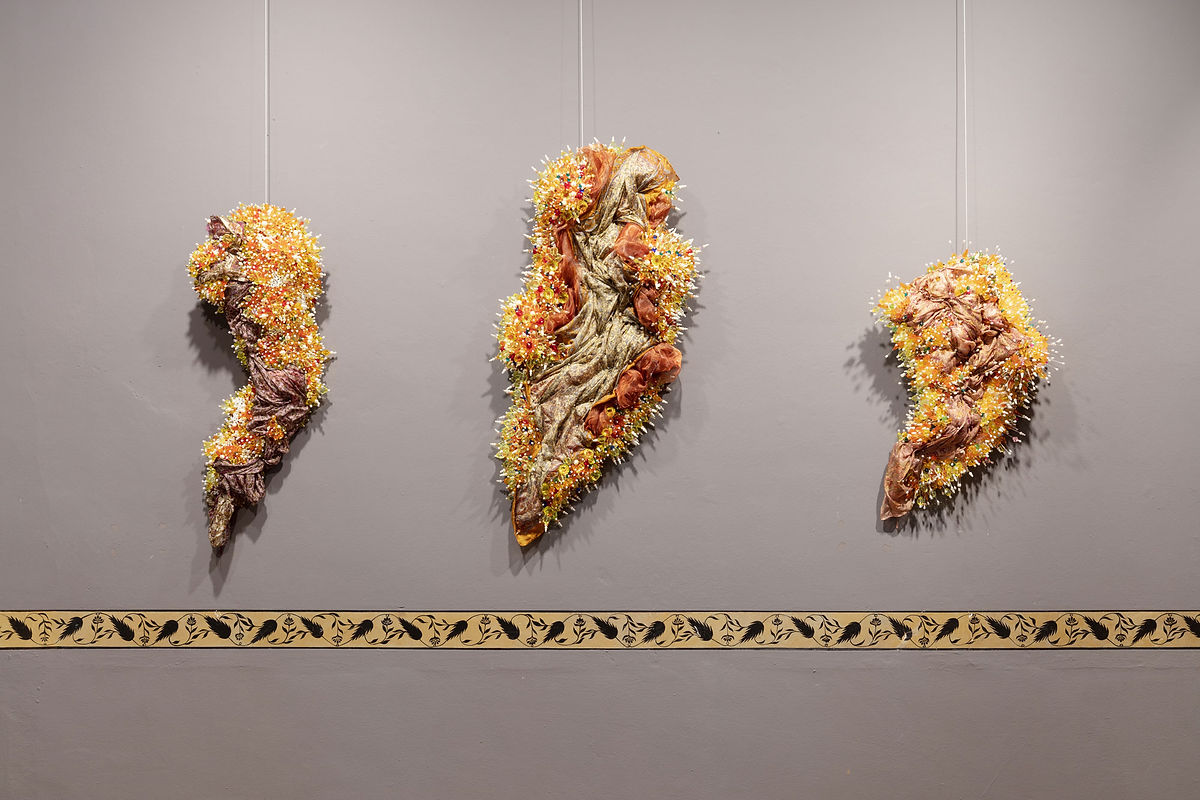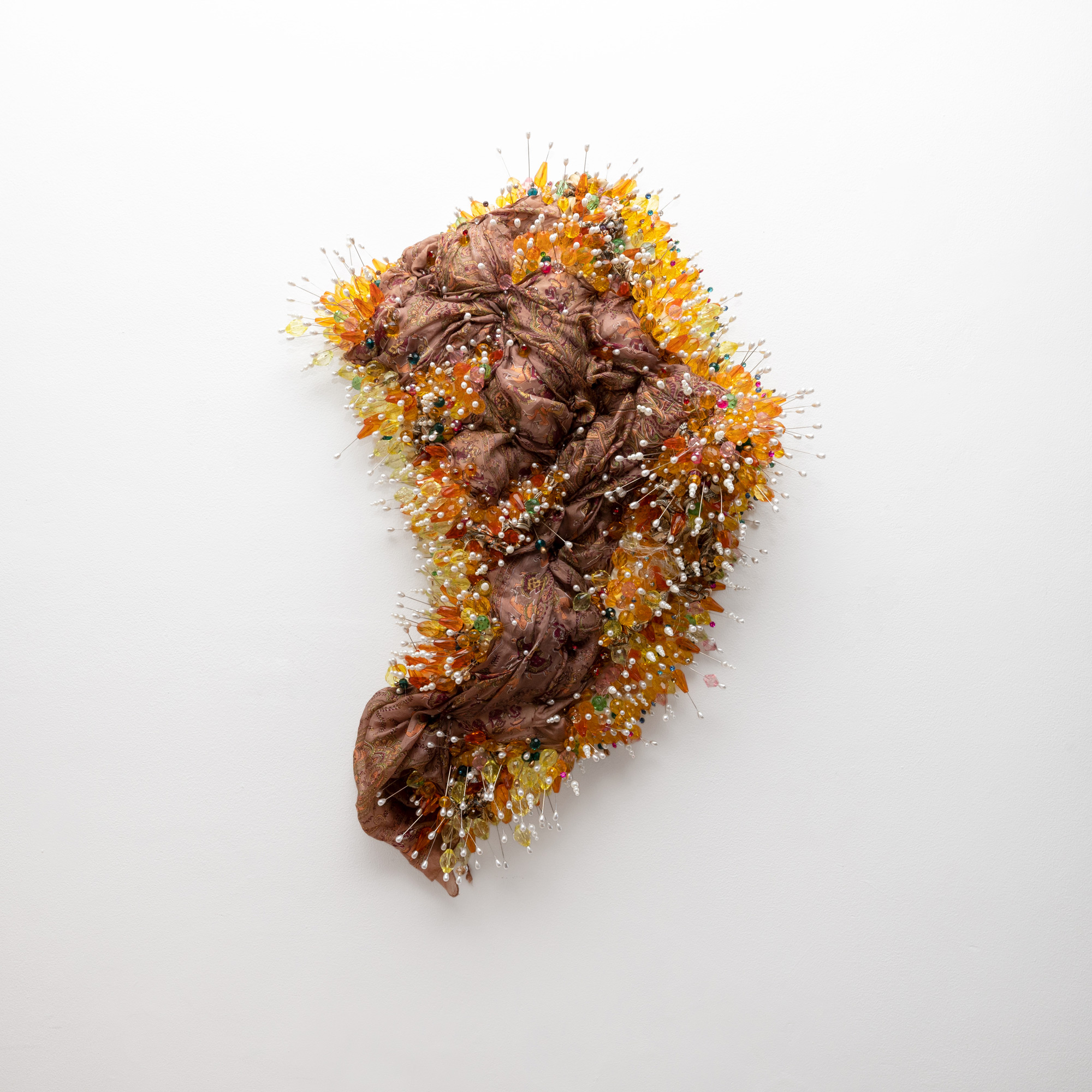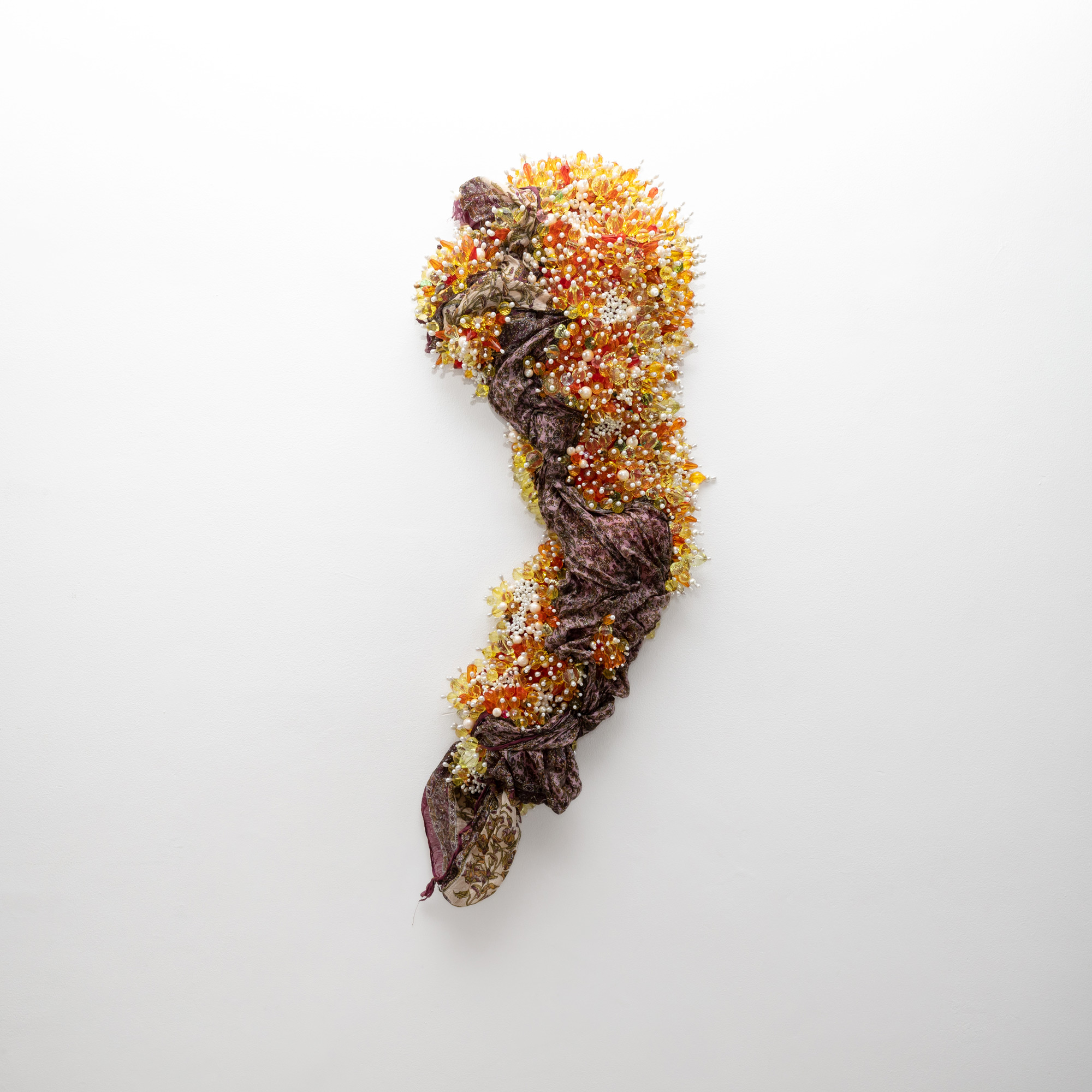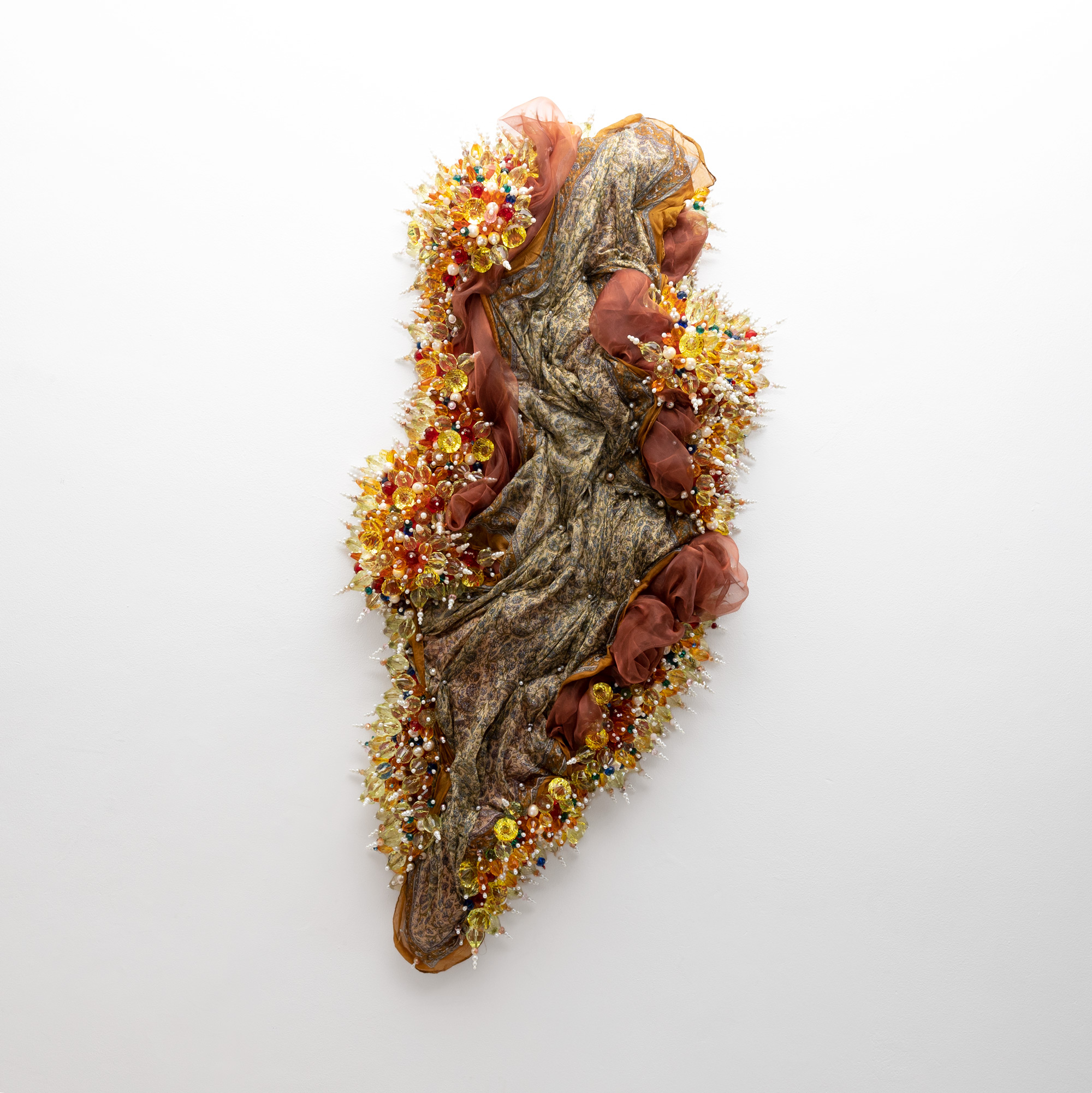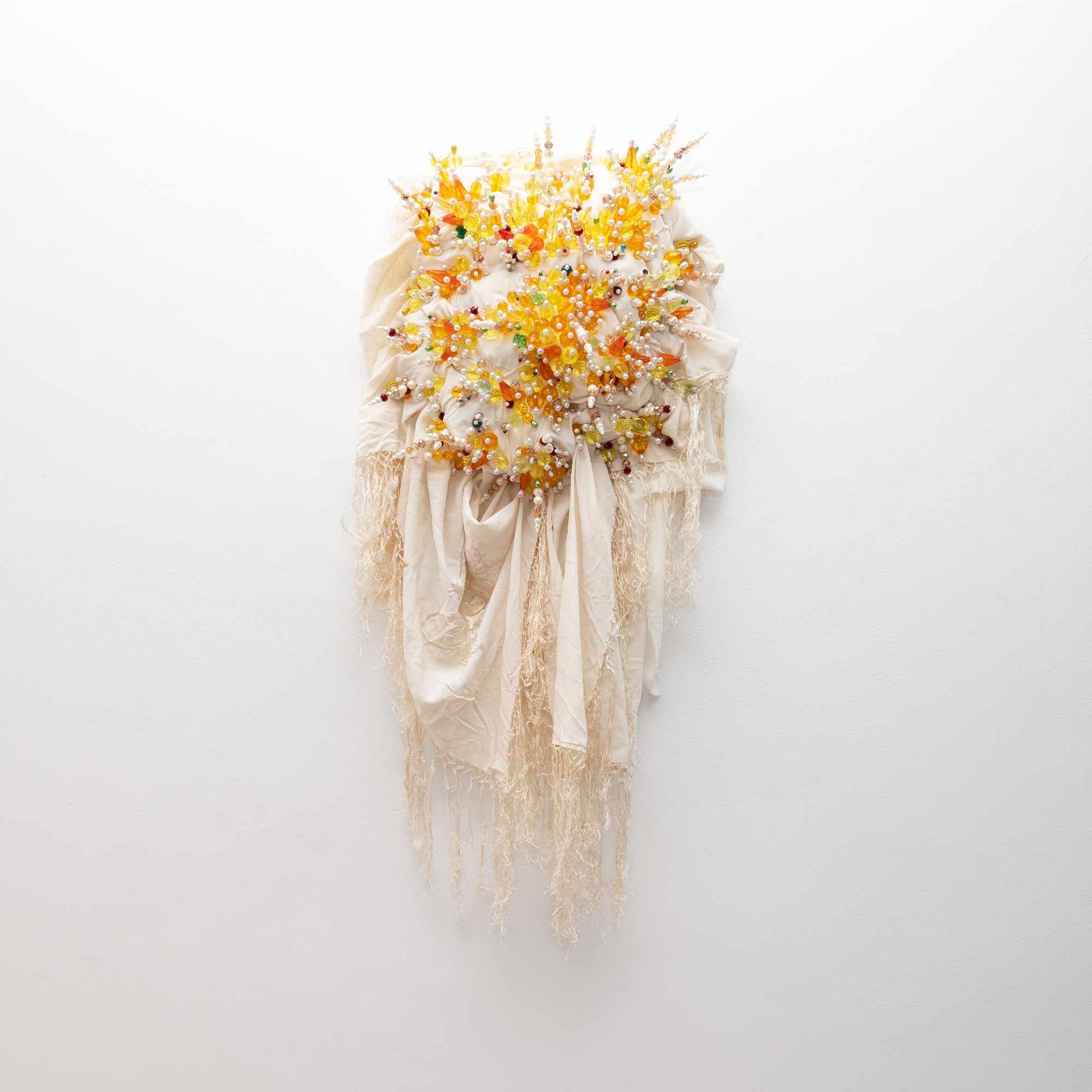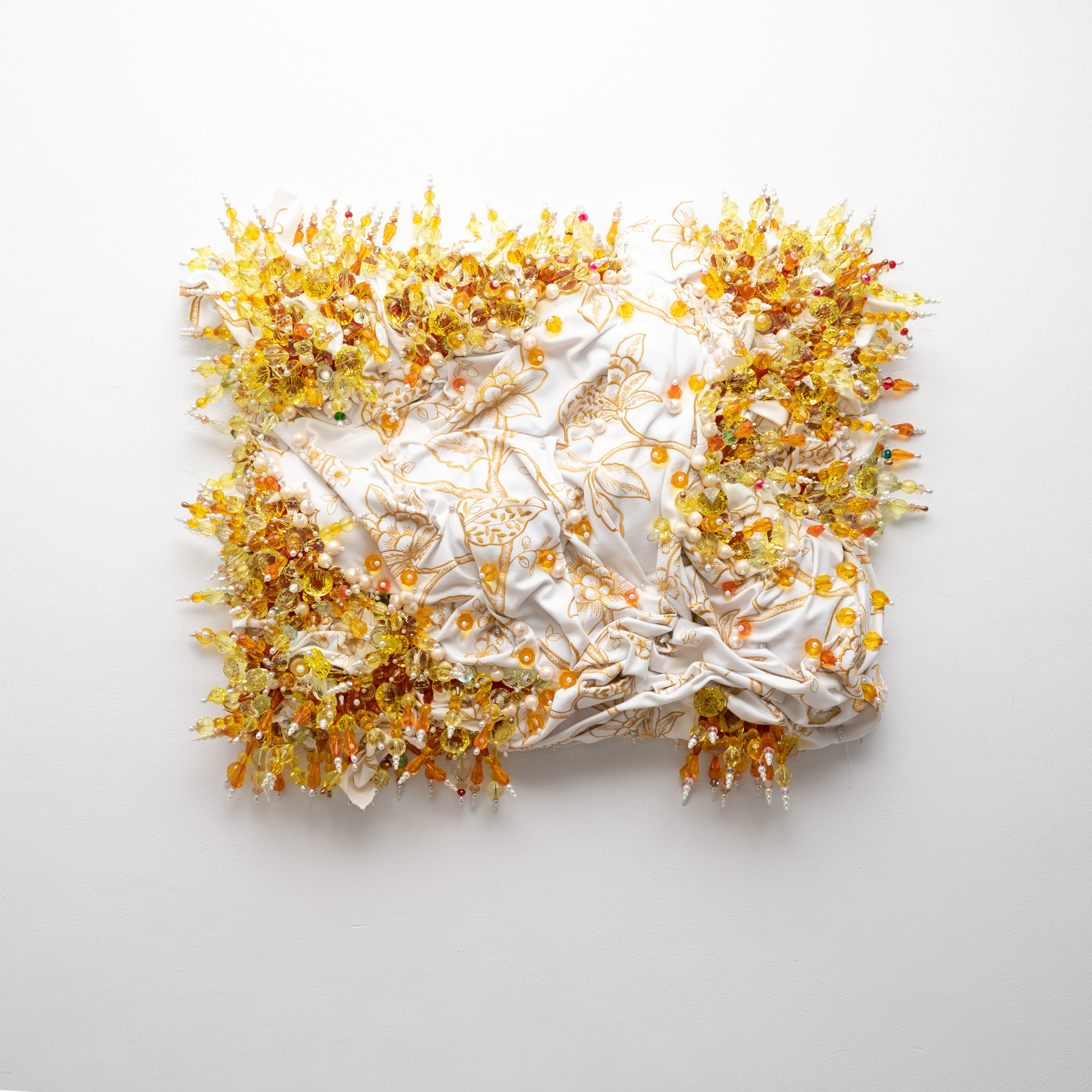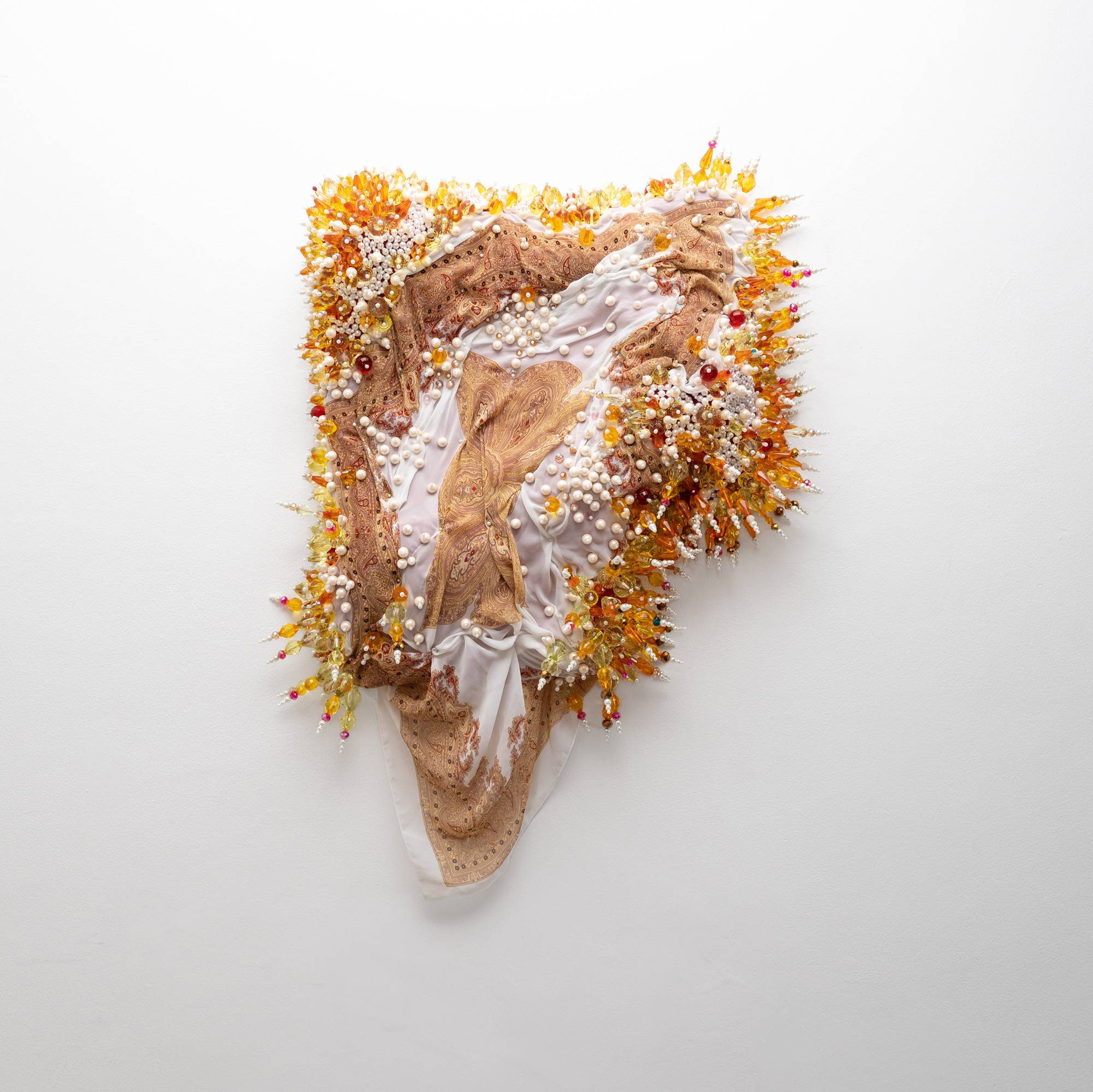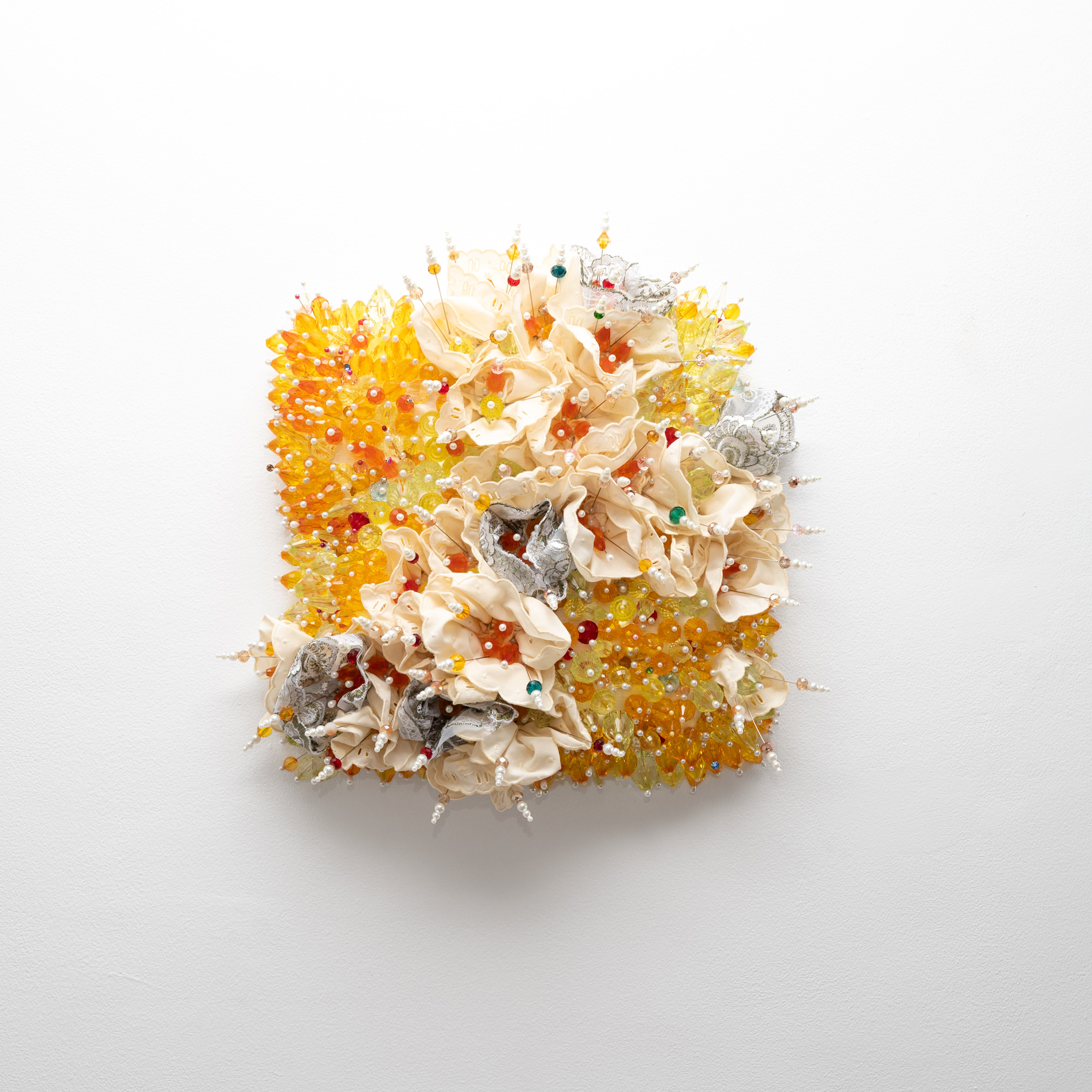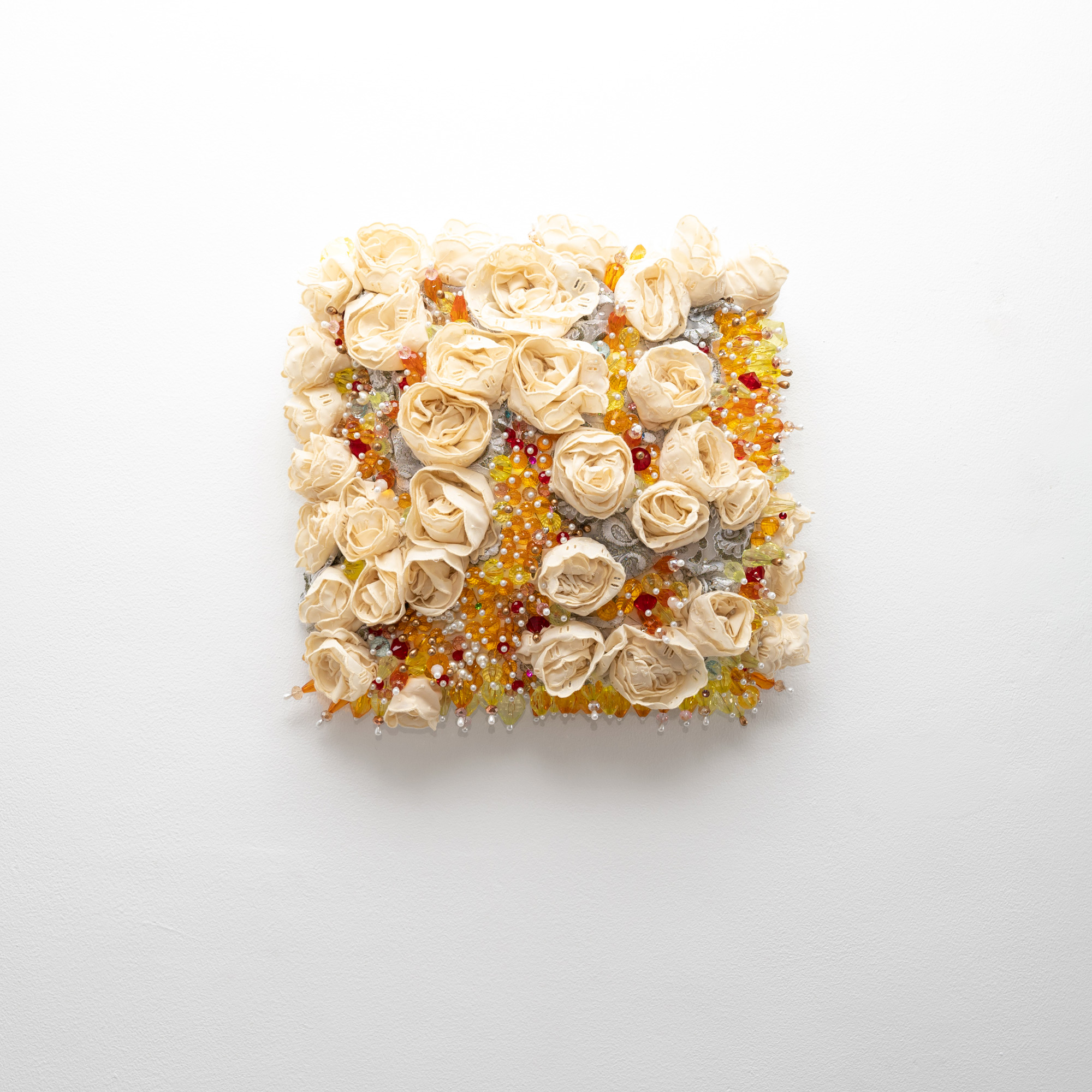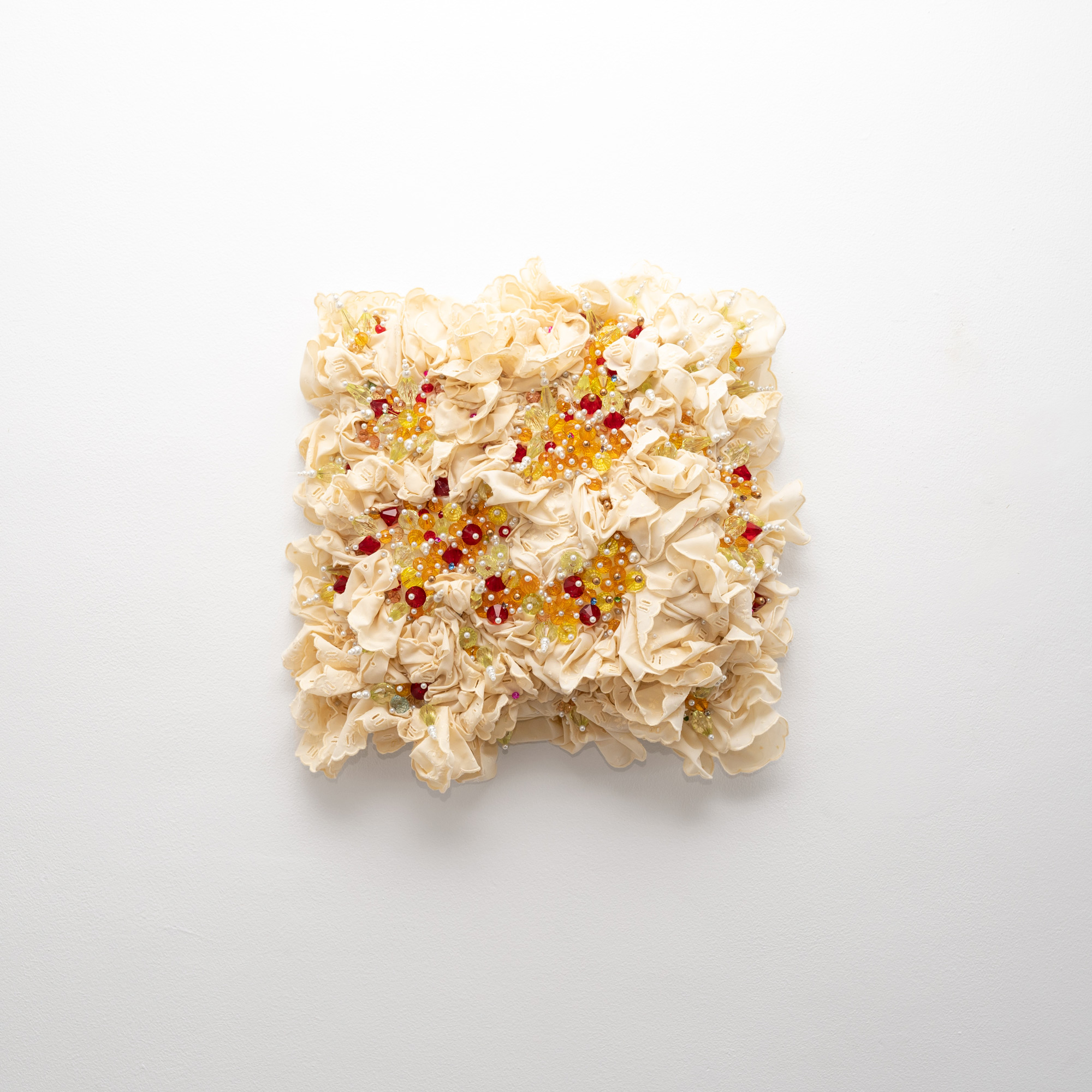Sahlah Davids
Akhlaq
03 December 2022
-
17 January 2023
Installation views: Akhlaq. Photographer: Mia Thom
RESERVOIR presents Akhlaq, a solo exhibition of new works by Sahlah Davids at the Boschendal Norval Art Gallery. The exhibition opens Saturday, 3 December, and runs until 17 January 2023.
Through the medium of textile and beadwork, Davids's intricate wall sculptures speak to the familial lineage of sartors that came before her. Her particular appropriation of scarves (often inherited from family members) denotes a strong affiliation to the realms of religiopolitics and presents her close ties to the histories sewn into the lives of the Cape Malay people.
The title of the exhibition, Akhlaq, is a word commonly used in the Davids family home. An Arabic term, its meaning proposes a disposition of good character, wholesomeness, compassion and consideration in someone.
The exhibition acts as a material manifestation of a story told to the artist by her Ouma (grandmother), recounting her wedding day 55 years ago, in a poignant mix of community, love, craft and the implied heartbreak of the apartheid system in which it all took place.
On the warmest day of August, my Ouma, draped in white velvet and fur, got married. Wedding venues were few and far during the 1950’s with no elaborate decadence promised to non-white communities for their most intimate day of celebration. A discriminatory system designed to regulate and monitor those who resisted regulation. My ouma’s wedding was held in the narrowing Queen’s Road stretched out into a cul-de-sac. The close quarters offered the homes of her neighbours but as an extension to her own. A wedding celebration spilled into the living rooms and kitchens of those she had grown up with. Her father had spent the day preparing the food for the wedding in their home. It was decided, therefore, that my Ouma should sleep at the home of her next-door neighbour. On the morning of her wedding she woke up, bathed and walked to her next-door neighbour’s next-door neighbour. At this house she was assisted by all the elderly aunties in Queen’s Road to get herself ready. Aunty Dijah, Aunty Asa and Aunty Leila. Her dress was draped and tightened by Aunty Dijah. I imagine her to be the aunty my Ouma had passed every Sunday morning to buy koeksisters. Her make-up smeared and dabbed by Aunty Asa, who maybe had always tucked five-rand coins in my Ouma’s tightly clad fists on Eid mornings when she was growing up. I use my imagination here as these connections to a story of an aunty who cared is a familiar story experienced by many. She had gotten ready on that hot August day smothered in the warmth of the mothers of her community, to soak from the souls of the epitome of creativity. The dressmakers, the seamstresses. My Ouma’s wedding was held at the home adjacent to hers. That day trestle tables decorated the outside of the home inviting all the neighbours from the community to celebrate together. Once the home had become too crowded, the doors of another would open, offering themselves and their homes to host and welcome. Those fondly remembered trestle tables had travelled down the street and journeyed their way into backyards to accommodate the overflowing community that day. My Ouma loved this memory. How she remembered moving from one home to the next, making her way down Queen’s Road. All to greet her guests on the hottest day of a winter August, still draped in her white velvet and fur. On the evening of her wedding day, the wooden floor of the ‘bruidskamer’, which was the bedroom my grandparents would move into after getting married, was unfinished. The unfinished flooring was shrouded by a next-door neighbour who sold carpets. The tapestries he had offered managed to hide the unfinished flooring. These narrations of memories of community, compassion, empathy and generosity are the fragments that mould generations. These shared stories become relatable memories to the meaning of “akhlaq”. My Ouma’s recollection of her wedding day was an exemplar of such. “Akhlaq” is a word used by my family to describe the essence of what it means to be human. An embedded consciousness of care, love and kindness all in the midst of a time of injustice. It is the pin that hurts but binds. Story told by Sahlah Davids Written and Edited by Aliyah Price
